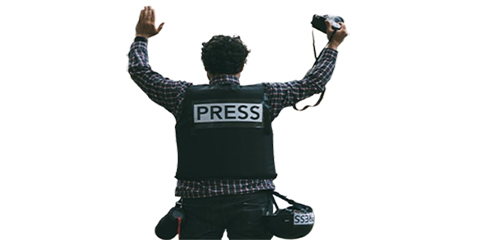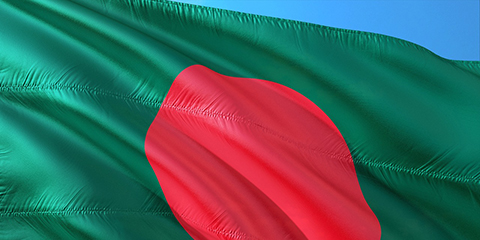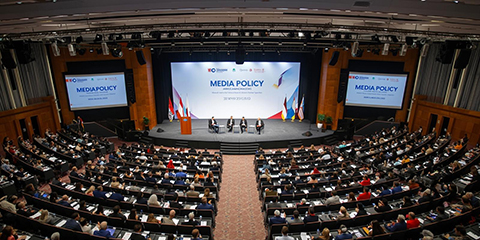Silent Guardians: PFUJ slammed for silence as press freedom violations soar
JournalismPakistan.com | Published last year | JP Special Report
Join our WhatsApp channel
ISLAMABAD—In a shocking display of apathy, the Pakistan Federal Union of Journalists (PFUJ) and other journalist bodies stand accused of disregarding the rapidly deteriorating state of press freedom in the country. As media violations soar to unprecedented levels, with at least 12 significant incidents reported in recent months, the silence of these organizations is not just deafening; it's devastating.
The latest in a string of alarming incidents involves Punjab Information Minister Uzma Bukhari's thinly veiled threat to journalists before Chief Minister Maryam Nawaz's press conference. Bukhari's warning, "If anyone in the press conference today tries and creates a nuisance, or makes noise or misbehaves, I won't spare them," sends a chilling message to the journalistic community. Yet, the PFUJ's response has been conspicuously absent.
Another equally alarming incident is the forced resignation of prominent anchor Samina Pasha from GNN. Pasha cited pressure from unnamed sources unhappy with her analysis. Pasha's choice to maintain her integrity by quitting rather than changing her stance is a stark reminder of journalists' daily pressures. Once again, the silence from journalist bodies is palpable.
The harassment of female journalists has reached new heights, with high-profile cases like Shifa Yousafzai and Asma Chaudhry battling false rumors and personal attacks. These incidents not only highlight the toxic environment for women in media but also underscore the urgent need for robust support systems that the PFUJ and other bodies seem reluctant to provide.
Violence against media personnel has escalated, with religious party workers in Karachi physically attacking journalists and damaging equipment. Investigative journalist Azaz Syed faced threats from religious party leaders. Yet, concrete actions from journalist unions to protect their members are nowhere to be seen.
The political turmoil in the country has further endangered journalists, with many caught in the crossfire during protests and unjustly detained. The inconsistent application of social media regulations, exemplified by government officials using banned platforms, adds another layer of complexity to a challenging environment for journalists.
Perhaps most alarming is the targeting of senior journalists in Khyber Pakhtunkhwa, with some being wrongfully added to terrorism watch lists for their work. The arrest and jailing of journalist Ehsan Naseem for conducting an interview critical of state policies is a clear indicator of the lengths to which authorities will go to suppress free speech.
In the face of these violations, the PFUJ's inaction is disappointing; it betrays the principles it claims to uphold. As Pakistan's primary defender of press freedom, the PFUJ's failure to mount a robust response to these threats raises serious questions about its effectiveness and commitment to its mandate.
The closure of media offices, leaving scores of journalists unemployed, further highlights the precarious state of the industry. Yet, where do the unions' voices advocate for job security and fair treatment?
The PFUJ and other journalist bodies must recognize that their silence in the face of such blatant attacks on press freedom is tantamount to complicity. Their primary responsibility is to protect and advocate for the rights of journalists, not to maintain a comfortable status quo with those in power. The time for symbolic condemnations has passed. It is high time for these unions to wake from their slumber and take decisive action.
As we stand at this critical juncture, the question remains: Will the PFUJ and other journalist bodies finally break their silence and take meaningful action, or will they continue to be passive observers as press freedom in Pakistan crumbles? The integrity of journalism in Pakistan hangs in the balance, and the clock is ticking.

























